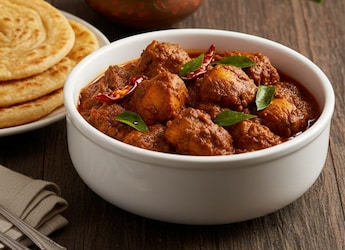Whether you're a seasoned marathoner or a casual jogger, proper nutrition plays a vital role in enhancing your running performance and overall well-being. As a runner, your diet plays a pivotal role in your performance, stamina, and overall health. Prioritise a nutrient-rich diet and time your pre-run and post-run meals wisely to maximize your running potential. Remember, every step you take towards a balanced diet brings you closer to conquering your running goals and achieving a healthier, more fulfilling lifestyle. So lace up your running shoes and fuel your run with the power of a good diet. To help you out, we are sharing some tips that will let you plan your daily diet for an energizing run.
Also Read: Hungry After the Gym? These 7 Protein-Rich Snacks Are Your Perfect Workout Companions
Which Diet Is Best For Running? Here Are Some Tips To Plan Your Diet:
Pre-Run and Post-Run Nutrition
The timing and content of your pre-run and post-run meals can significantly impact your performance and recovery. Here are some essential guidelines to follow:
Pre-Run Meals:
Never run on an empty stomach. Fuel your body with a light and easily digestible meal before you hit the track or pavement.
Avoid heavy meals just before running, as they may lead to discomfort during your run. Instead, opt for a balanced snack approximately 10 minutes before your run. A combination of a banana and a granola bar with some seed mix can provide the necessary energy without weighing you down.
Post-Run Meals:
After your run, give your body some time to recover before having a full meal. Waiting for at least 25 minutes allows your body to cool down and replenish its energy stores.
Aim for a post-run meal that includes a balance of carbohydrates, protein, and healthy fats. This combination aids in muscle recovery and refuels your energy reserves.
Also Read: 10 Pre and Post-Workout Snack Recipes
A healthy diet is important for weight loss.
Photo Credit: iStock
Consume Healthy Fats and Anti-Inflammatory Foods
Nutritionist Shilpa Arora emphasizes the importance of healthy fats in a runner's diet. "Avoiding a fat-free diet is essential as fat-soluble nutrients become unavailable to the body, leading to potential issues. To combat conditions like runner's itch, incorporate healthy fats into your meals. Additionally, focus on consuming anti-inflammatory foods as they help in healing excessive internal dryness, ensuring your body remains in peak condition," she suggests.
Strike the Right Balance
Maintaining a balanced diet is paramount for runners seeking optimal performance and recovery. Your diet should be rich in protein, vitamins, iron, calcium, essential fats, and fibre. Rather than skipping meals, opt for a structured approach by dividing your daily intake into six meals - three main meals and three snacks. Ensure that your diet includes a diverse range of nutrient-dense foods, such as lean meats, fish, green leafy vegetables, egg whites, milk, soy, fruits, cereals, nuts, and seeds.
Also Read: What to Eat After a Workout at the Gym: 5 Easy Tips
Stay Hydrated Throughout Your Run
Water is your best friend when it comes to running and overall well-being. Staying well-hydrated is crucial, both during and outside of your runs. Make it a habit to have plenty of fluids throughout the day to maintain proper hydration levels. During your run, keep sipping water every 15 minutes to prevent dehydration. Remember, it's sips, not gulps, to avoid discomfort while running.
Listen to Your Body: Individualise Your Diet
While these diet tips serve as a general guideline for runners, it's essential to remember that every individual is unique. Pay attention to your body's signals and adjust your diet accordingly. Some runners may require more carbohydrates for extended endurance, while others might benefit from additional protein for muscle repair. Experiment with different foods and meal timings to find what works best for you.
Running is one of the best forms of exercise. Do it well with a good, balanced diet.
